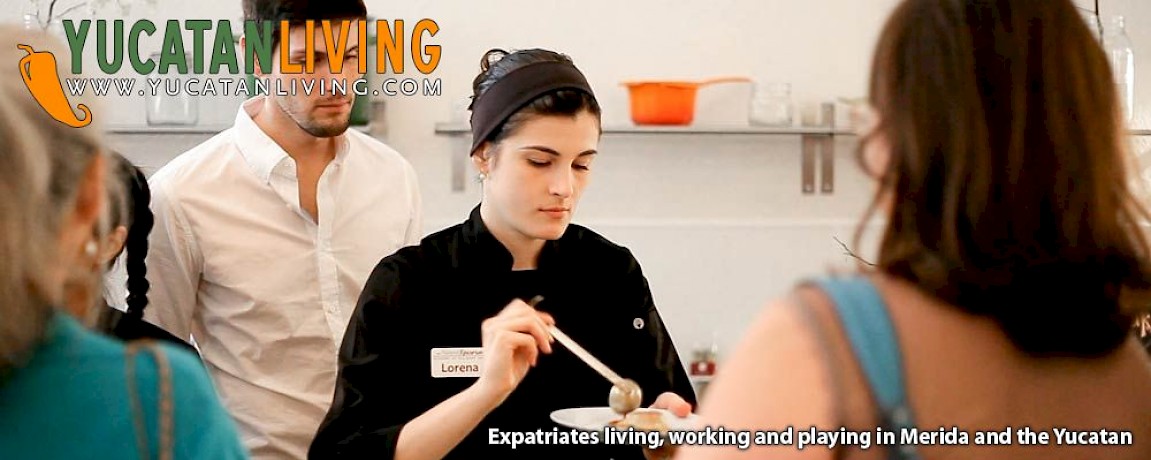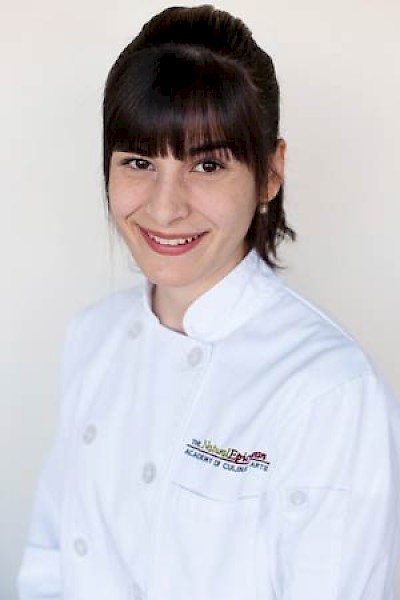Macrobiotic Mission in Yucatan
Editors Note: A reader asked us if we knew about Lorena, the subject of this article. We did not, but were interested enough to find out more. Having moved to Yucatan from California, we were at first quite discouraged by the lack of healthy eating alternatives back in the day. Since then, Yucatecans have become more health-conscious, and the world of food in Merida is changing. If the subject of healthy food interests you, we think YOU might like this story about Lorena too!
Macrobiotic Restaurant in Merida?
A Mexican Macrobiotic restaurant in the Yucatan Peninsula? It could become a reality thanks to a 22-year-old culinary student from Merida.
Lorena Basteris Rubio packed her bags last year and headed from Merida to Austin, Texas to pursue a love for healthy food. Lorena says, “Growing up in a tropical area such as Yucatan was amazing. You get to do, experience and taste so many different things, from the beautiful cenotes to the delicious exotic fruits such as guanabana, guava and dragon fruit. I was really fortunate.”
A Need for Healthy Alternatives
Despite her love of Yucatan, Lorena saw a need to promote healthier food in and around her hometown. “I love Yucatan's cuisine... it has so much potential, especially when you go back to the roots of it.” The issue for this soon-to-be-professional chef is that “in the present day, Yucatan overuses animal products and fats it does not need. There is already so much flavor with all the cooking methods, herbs and spices that are traditional here!"
Thank You, Facebook
As a matter of fact Lorena started shifting toward vegetarian choices when she was just 14. Eventually this led her to search for a healthy cooking school that followed her beliefs. Lorena says she spent months looking until the name “Natural Epicurean” popped up on her Facebook feed.
The culinary student says the Austin, Texas school was perfect for her. She is learning five different healthy cuisine modalities. She now gets to learn Vegetarian and Vegan cuisine, along with Ayurvedic, Raw Foods and, the cuisine she is most passionate about, Macrobiotic.
Why Macrobiotic?
A Macrobiotic diet is heavy on whole grains (30-60% of daily food intake) and vegetables (25-30% of daily food intake). It avoids the use of highly processed food and most animal products. Natural Epicurean CEO Rich Goldstein says “When whole grains are combined with a good variety of other unrefined plant foods, all the elements that are necessary for human development become available to us.”
During the Macrobiotic module in school Lorena has found herself cooking with leafy vegetables like dinosaur kale, dandelion greens, sugar snaps peas and scallions to name a few. On the grain side, quinoa, barley or even brown rice may be on the menu.
Lorena says the chance to learn these types of "healing kitchens” wasn’t something she saw offered anywhere else. Natural Epicurean also made the immigration process a breeze for Lorena. For his part, CEO Goldstein proudly points out that it is wonderful to have students like Lorena “because we recognize the value of the cross cultural influence of cuisine and the global need to educate our world, regardless of national borders, that food is the ultimate medicine.”
Coming Back to Merida
Lorena says after graduating later this year she wants to start her career out by doing Macrobiotic counseling and cooking classes. It won’t be hard to find a spot to set up those classes, as her mom runs a holistic center where Lorena is looking forward to teaching students what she has learned.
In the long run, though, she hopes to open that Mexican Macrobiotic restaurant she has been dreaming about here in Merida. She says she is already working on healthier and vegan versions of all her favorite dishes.
A Great Choice For All of Us
As she carves her path to her ultimate goal Lorena says traveling to the USA to attend school at Natural Epicurean “has definitely been an eye-opening experience on so many different levels, both personally and professionally. I truly think it is one of the best choices I have made.”
We look forward to hearing more about Lorena, her restaurant and other healthy eating alternatives in Yucatan!
****
If you would like to find more about Lorena's future restaurant or consulting, you can contact her at lorenabasterisrubio@gmail.com
Lorena's school in Austin, Texas: Natural Epicurean
Do you know of a restaurant in Merida that serves healthy alternative food? Leave us a comment with your favorite one!









Comments
Working Gringos 12 years ago
True, Alan. On the other hand, tastes (and everything else...) are changing every day!
Reply
Alan - Mérida 12 years ago
WISHING Srta Basteris Rubio much success in her endeavours. The Yucatán needs her approach to food choice and preparation -- alas, it remains an unlikely place for her future restauant to survive.
We have watched some local efforts to offer an all vegetarian menu, such as the Dafnis by Instituto Cumbres, and the Espacios Maya 2012 on 62nd around 57th in el Centro. As with the All Natural Restaurant one block behind Superama, all have had to offer chicken dishes to survive, with less demand for vegetarian offerings. El Arbol in GarcÃa Gineres hangs in with a simple one meal vegetarian lunch, and Savia downtown hangs on as well. Having witnessed the death of many restaurants not in tune with the local demand for fatty meat etc., well, wishing her success is a bit far from predicting success.
Reply
(0 to 2 comments)